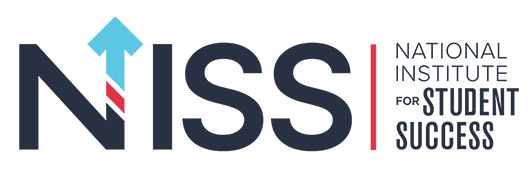NISS page
The NISS Is Founded Upon Three Core Principles
1
2
3
Institutions inadvertently hinder their students' success through policies, practices, and structures that are among the key drivers of equity gaps.
Institutions can use data to identify and to understand these institutionally created barriers to completion.
Action-oriented institutions with the right coaching and support can create stronger and more equitable enrollment, retention, and graduation outcomes.
Playbook Executive Summary
| Prioritized Actions | The University of Houston-Downtown is a critical engine of social mobility for the Houston region, but its positive impact is currently blunted by high students dropping out of higher education entirely. To fully realize its potential and that of its students. UHD must most systematically address the institutional barriers students are facing and do so at scaled supports across several key student-support office. |
| 1 | Standardize academic advising systems and protocols to ensure students receive consistent, proactive support across all advising units and colleges |
| 2 | Systematize the use of academic data to identify course with high non-pass rates and to assess the effectiveness of course and program re-design to improve outcomes in these courses |
| 3 | Develop and standardize intentional pathways to help students transition successfully into academic programs |
| 4 | Strengthen financial aid through collaboration with other units and coordinated, proactive outreach to students |
| Alignment with strategic plan |
The University of Houston-Downtown has designed a strategic plan to impact "Houstonians seeking to contribute to the social, intellectual, and cultural lives of their communities. "By implementing these recommendations UHD can:
|

